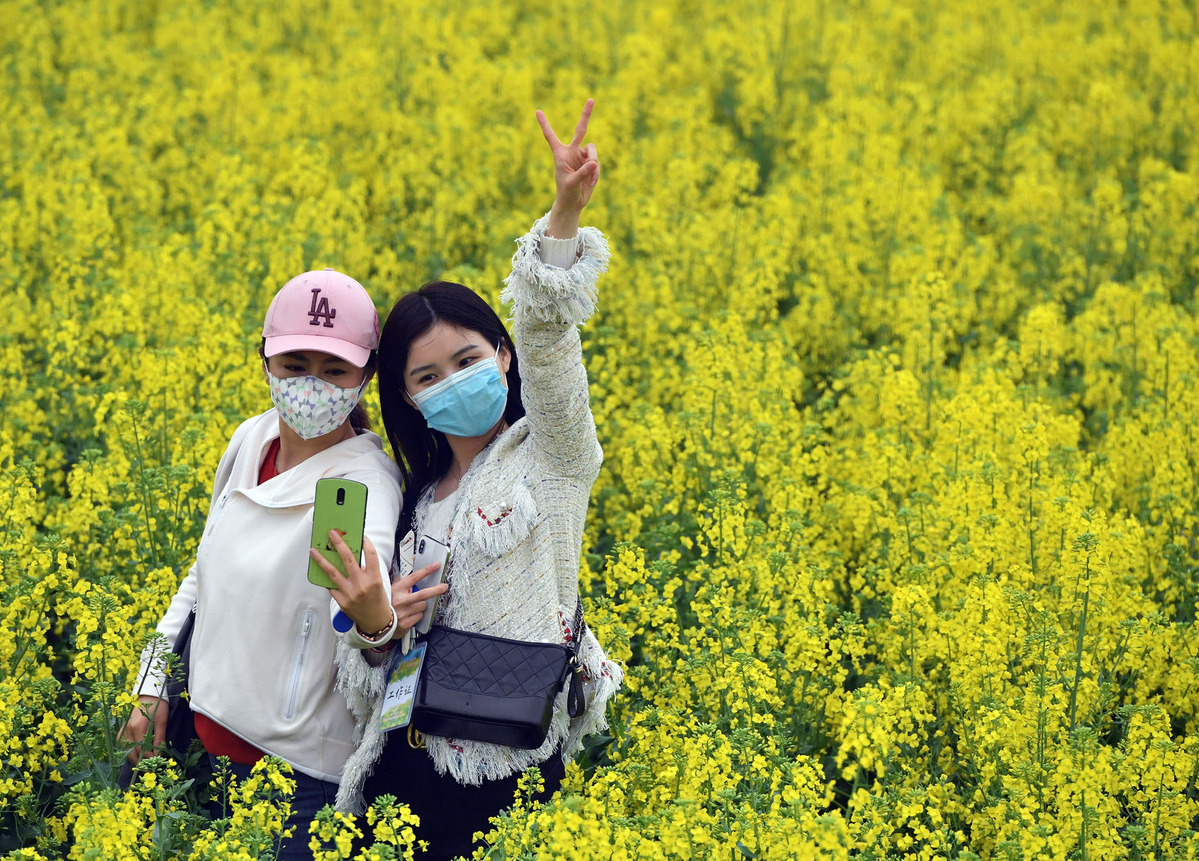China welcomes tourism, consumption rebound under strengthened COVID-19 containment


SHANGHAI - The upcoming five-day International Labor Day holiday will be a "Golden Week" for tourism and consumption since China entered the phase of regular epidemic prevention and control.
Although group tours across provinces are still suspended and outbound travel is discouraged, the number of domestic trips to be made in the holiday is estimated to be over twice the number of that made in the three-day Tomb-sweeping Day holiday in April.
How will the country guarantee healthy and safe travels while boosting tourism and consumption in the holiday?
Booming reservations
Among comprehensive prevention and control measures during the holiday, tours to all of Shanghai's top tourist attractions should be reserved to avoid gatherings of people. "Safety comes first," said Yu Xiufen, head of the Shanghai Municipal Administration of Culture and Tourism.
The city, with 84 major tourist attractions and over 5,200 hotels reopened, will be the largest tourist destination as well as the largest tourist source for the holiday, according to booking data from Trip.com Group.
However, reopened tourist sites should receive no more than 30 percent of their daily or real-time visitor capacity and indoor tourist sites should remain closed, according to a circular jointly released by China's Ministry of Culture and Tourism and the National Health Commission on April 13.
"Better travel planning is needed if you don't want to gather inside the attractions or outside waiting for entry," said Zheng Bing, a 33-year-old visitor who has booked trips to Zhujiajiao Old Town and Shanghai Happy Valley for her family.
"I can book through the attractions' official online channels or call them with the required information for a limited number of family members, and check the real-time passenger flow on the WeChat accounts of the Shanghai Municipal Administration of Culture and Tourism," she said, adding that nearly 200 attractions, museums, art galleries and public cultural centers have launched booking access through Visit Shanghai, an online platform with Shanghai's cultural and tourism resources.
"In April, the number of tourists who made online bookings increased by 300 percent from March," said Yu Xiaojiang with Trip.com Group, noting that over 4,000 tourist attractions in China have launched online booking access.
"Nearly 2,000 visitors have booked for May 1, marking the largest daily volume during the holiday. We will take more precise epidemic prevention measures," said Zhao Shuai, marketing director of Shanghai Happy Valley.
Prepared destinations
China has urged the safe and orderly opening of tourist sites across the country, noting that efforts should be made to control passenger flows, prevent the gatherings of crowds, implement reservation systems and raise public awareness of epidemic prevention and control.
China's resort island Hainan province recently announced 20 specific epidemic-control measures in tourism, transportation, dining and shopping sectors while launching holiday promotions to boost consumption.
"Tourists are required to wear masks, show their health codes and have their temperature checked. All the sales staff are required to wear masks and gloves," said Zhang Ke, an employee with a duty-free shop in downtown Haikou, capital of Hainan.
One-meter bars were set at the shop's sales counters and sanitizers were provided, while staff will keep customer flows at a safe distance and disinfect public areas regularly every day, Zhang said. Over 85 percent of hotels across China have resumed operations, according to Tongcheng-eLong, another online travel agency giant.
Over 110,000 hotel suppliers have joined the Safety Hotel Initiative of Tongcheng-eLong in adopting more safety measures, including disinfecting public areas and popularizing coronavirus control knowledge. In popular destinations such as Shanghai, Yunnan and Hainan, restaurants are encouraged to serve separate dishes.
In Shanghai, some 30 percent of restaurants now offer separate dishes for diners. Tourists will also shoulder more responsibilities with better travel plans and behavior, said He Jianmin, an expert with Shanghai University of Finance and Economics.
Internet empowerment
"Epidemic-control measures including online booking are also important for ensuring the tourism sector's high-quality long-term development," said Zhao Shuai, adding that China will eye booming smart tourist attractions empowered by internet technologies.
5G infrared thermal imaging temperature measurement has been implemented in public areas including metro stations, commercial centers, airports and train stations in Shanghai and many other cities to monitor people's body temperature.
The Old Town of Lijiang in Southwest China's Yunnan province implemented a big data system to monitor passenger flows and prevent the gathering of crowds.
Although group tours across provinces were still suspended, online consumption for tourism boosted. Shanghai has taken measures to promote the recovery of epidemic-hit culture and tourism, and exhibitions, cooking competitions and tours have been held online.
Trip.com Group said its sales of travel products had reached 200 million yuan ($28.33 million) in seven recent livestreaming sessions as of Wednesday. Scenic spots in Yunnan have cooperated with video platforms to livestream their natural beauty to attract more tourists.
"Go-Yunnan," an online travel platform, has launched more than 1,400 live feeds allowing people to enjoy the beautiful scenery of Yunnan from home. "Online tourism, or 'cloud tourism,' as a new mode of tourism, helps scenic spots attract more tourists and aids the recovery of Yunnan's tourism industry," said Yang Wenwen, head of the platform's content operation.
"I expect 'cloud tourism' to drive the future upgrading of China's tourism industry." The number of netizens in China had reached 904 million as of March 2020 and 897 million of them access the internet through mobile phones, according to the China Internet Network Information Center.




































